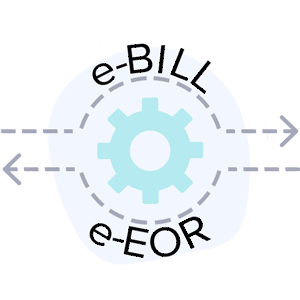Data: Excessive Workers’ Comp Claim Denials Backfire

An industry study tells an interesting story about workers’ compensation claims. A significant upward trend in denials ultimately cost employers and their claims administrators revenue. That’s because about 67% of claimants nationwide eventually prevailed over such denials, despite the resources claims administrators devoted to denying the claims.
With such a huge percentage of denials converting to paid claims, the administrative and legal costs claims administrators incur represent something sadly typical of workers’ comp: pointless waste.
Expensive Claim Denials
A study conducted by Lockton Companies, an international insurance brokerage firm, determined that nationwide injury claim denials increased by about 20% between 2013 and 2017, from 5.8% of claims to 6.9%. Yet, within 12 months of the denial, the employer/insurer ended up accepting and paying for over two-thirds of those denied claims.
Not only did the employer/insurer have to pay for the requested medical treatment in these previously denied cases; the employer/insurer also incurred significant additional costs to fight their losing battles against injured workers.
The average payment amount for a denied and subsequently paid claim is much higher than the average cost for an accepted claim. Lockton found that, on average, accepted claims cost $10,153. In comparison, initially denied, subsequently accepted claims cost an average of $15,694.
With far more denials overturned than upheld, the losses to employers and insurers are potentially staggering.
The numbers make a strong, clear statement: if claims administrators are under the impression that a policy of “deny first, ask questions later” saves money for their employers/insurers, these claims administrators are mistaken.
The Trust Deficit
With injury claim denials on the rise over the last several years, employers/insurers need to ask themselves some tough questions:
- Are claims administrators genuinely assessing the validity of injury claims, or simply trying to save the employer money? If the latter, it isn’t working.
- What is the ultimate cost of creating an environment in which workers no longer trust their employers to live up to their obligations? If the employer puts revenue ahead of fulfilling their duty to care for injured workers, morale and productivity will suffer.
- What do employers gain with a conflict-based approach to claims? Clearly, it isn’t revenue.
- Who actually stands to benefit from senselessly denying claims as a matter of policy? A heavy hand with the “denied” stamp is wasteful for employers, and potentially devastating to workers. Other than attorneys, who wins?
Workers’ comp is a promise. To avoid constant, endless litigation when workers are hurt on the job, employers agree to do the right thing when injuries occur. Employees rightfully expect to be taken care of, not battled tooth and nail for every cent.
Submit compliant RFAs, accurately calculate reimbursement, and recover incorrectly denied funds via second review appeal. DaisyBill’s Billing Software does it all, and more. Schedule a free demonstration today.
REQUEST DEMO
DaisyBill provides content as an insightful service to its readers and clients. It does not offer legal advice and cannot guarantee the accuracy or suitability of its content for a particular purpose.




